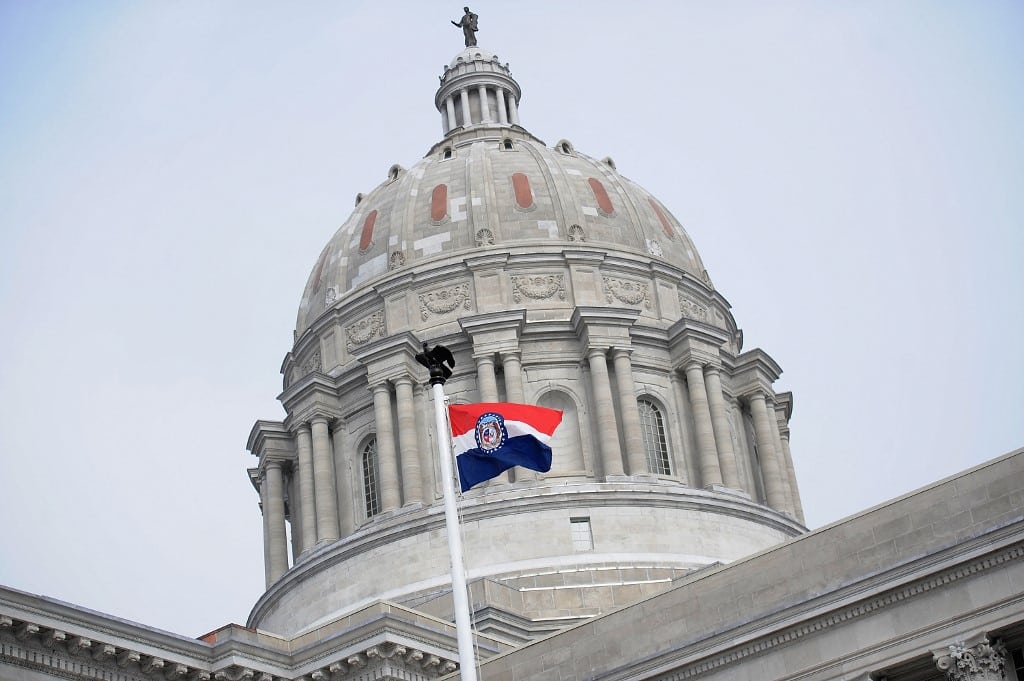
Missouri voters will decide on November 5 whether mobile sports betting will be allowed in the Show Me State, and, if approved, the revenue generated for the state’s education system is being debated.
Regulate It and Tax It
The Missouri legislature has been in favor of bringing mobile sports betting to the masses as an additional and lucrative revenue source to bolster the state’s education system. However, the political gridlock arrived when an intractable bloc of lawmakers led by Senator Denny Hoskins insisted that any sports betting legislation be linked to the legalization of gray machines, slot-style video lottery terminals, dotting the state’s truck stops, taverns, and convenience stores.
The state’s six professional sports teams, including the St. Louis Cardinals, Kansas City Chiefs, Kansas City Royals, St. Louis Blues, Kansas City Current, and St. Louis City FC, have combined to circumvent the legislature and form the political action committee, Winning for Missouri Education, which got the question on the ballot.
These are all interested parties in the sports betting initiative, as they will all reap revenue from sponsorships with the sports betting platform operators if Amendment 2 is answered in the affirmative. The name of the PAC was designed to remind voters that the tax revenue will be earmarked for the state’s education system, but it’s the tax rate that has some questioning whether it is high enough to generate the millions of dollars promised.
The proposed 10% tax rate on sportsbook revenues is markedly lower than the nation average of 19%, with some states like Iowa charging only 6.75% while New York is taxing its sports betting operators at 51% of their profits. The other half of the issue is whether to allow the sportsbooks to deduct their promotional bets from taxable revenue, which Iowa does while New York does not, even further widening the disparity.
Other states have had a graduated sunset of the promotional write-offs with 100% allowed in the first year before incrementally reducing the rate over a period of years. This allows the mobile sportsbooks to advertise and expand their customer base until the market matures.
“It’s a fledging industry,” commented Brent Evans, an assistant finance professor at Georgia College & State University. “Nobody really knows what is a reasonable tax.”
Just Say No
Winning for Missouri Education is not only backed by the state’s sports teams but financially sponsored by the two largest mobile sportsbooks in the nation, FanDuel and DraftKings, donating a combined $40.7 million to the PAC, according to the Missouri Ethics Commission, in hopes that their message can convince the voters to approve sports betting.
However, an opposing PAC was formed only a few months ago called Missourians Against the Deceptive Online Gambling Amendment (MADOGA) and it has been busy trying to convince the Missouri electorate that ushering in mobile sports betting will cause more harm than good.
“Amendment 2 is a bad deal for Missouri,” Brooke Foster, a spokesperson for Missourians Against the Deceptive Online Gambling, said in a statement. “This deceptive measure was written by and for the financial benefit of its out-of-state corporate sponsors and funders.”
Ironically, one of the PAC’s biggest financial donors is Caesars Entertainment, a gaming company with its own online sports betting platform but one that disagrees with the manner in which mobile sportsbooks will be allowed to operate.
The sticking point for Caesars is that it owns three land-based casinos but would only receive one skin and not three, meaning it would only be able to use its Caesars sportsbook without generating revenue from competitors that would partner with them to gain access to the market. There is little doubt Caesars would welcome mobile sports betting, but not under the rules as they are currently written.







